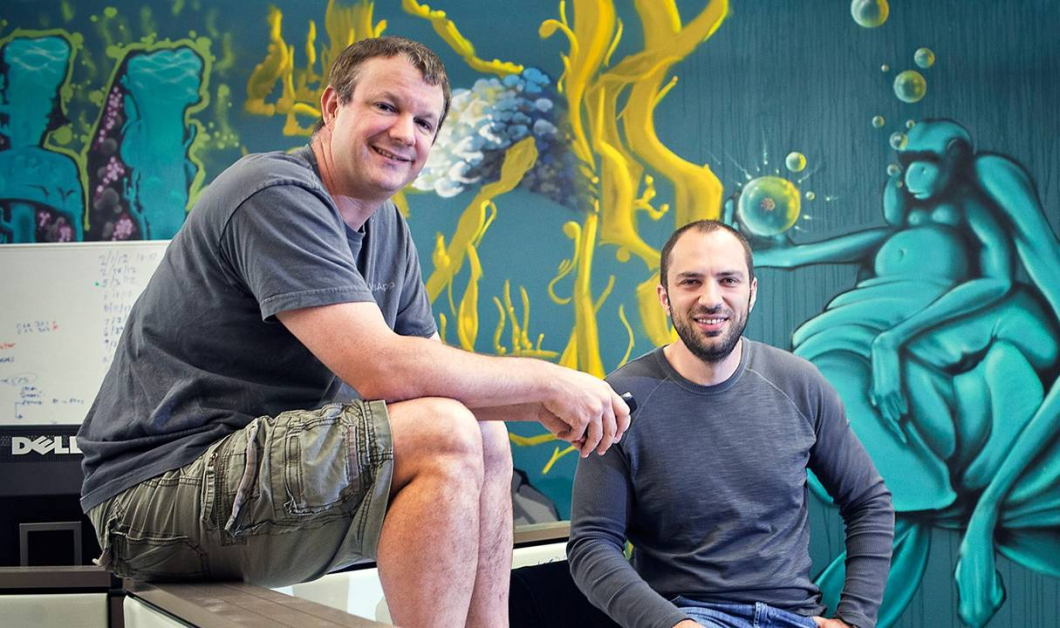WhatsApp is a messaging app with over 2 billion users worldwide. The Messenger is present on 98% of phones, and its history began well before its acquisition by Meta (at the time, Facebook). The service is free for smartphones, computers and tablets, among other mobile devices, but it has had a subscription model in the past.
In addition to exchanging messages, WhatsApp offers features typical of social networks, such as posting photos and videos that disappear after 24 hours (Status). Other functions include sharing your location in real-time and making payments.
Due to its great relevance and reach, WhatsApp is targeted by criminals who intend to commit scams or spread false information. To get around these problems, the app has security tools and partnerships with government agencies.
Below, understand in detail what WhatsApp is and what it is for, learn about the origin of the service and learn about the application’s main functions.
What is WhatsApp and what is it for?
WhatsApp is a free messaging app available for iOS, Android, KaiOS, Windows, macOS and Web. The service allows you to have individual or group conversations, sending text, audio and video over the internet.
WhatsApp users can also exchange stickers, GIFs, photos, videos, and files, share real-time locations and make payments via chat.
What does WhatsApp mean?
The name WhatsApp is a pun that combines the greeting “What’s Up?” with the word “App”, as the service itself explains.
Is WhatsApp a social network?
Yes. WhatsApp is considered a social network by data companies such as GWI and Statista, which monitor the digital platform market. The messenger is also classified as a type of social network by agencies specializing in social media, such as We Are Social.
Although one of WhatsApp’s main focuses is the exchange of individual messages, the app has functions that also allow you to create group connections, promoting interaction with friends, coworkers, family and companies through photos, videos and audio.
Some features that allow WhatsApp to be classified as a social network are:
- Creating a profile;
- Connection with other users who have some kind of relationship, such as friendship, family or work);
- Sharing content of mutual interest with your network of contacts;
- Tools for interacting with shared content (reactions, emojis, responses).
When was WhatsApp created?
WhatsApp was created in February 2009, together with WhatsApp Inc., in the United States. The application was initially launched in the App Store, for iPhones. The launch of WhatsApp for Android only happened in August 2010.
In the beginning, WhatsApp had only one simple function: to show users’ status so that friends would know when they were available to receive calls. However, the service had low user adoption.
It wasn’t until June 2009, when Apple launched push notifications with iOS 3, that WhatsApp was updated so that people would be notified when their contacts’ statuses changed.
WhatsApp version 2.0 was released to the App Store in August 2009 and introduced its own instant messaging feature. At first, the service was simply a free alternative to SMS. Then, the number of active WhatsApp users suddenly grew to 250,000 and things started to take off.
In February 2011, WhatsApp gained one of its most popular features to date: group chat. In October of that year, the messenger reached the milestone of 1 billion messages sent in one day. Audio messages arrived on the app in 2013, before the acquisition by Facebook.
Who created WhatsApp?
Jan Koum and Brian Acton created WhatsApp. The developers are former Yahoo! employees and launched the messaging app in 2009 after being rejected when applying for a job at Facebook.
Koum said the idea for WhatsApp came to him when he bought an iPhone. “I was annoyed that I would miss calls when I went to the gym,” the Ukrainian businessman said at an event ahead of the screening of the documentary “Silicon Valley: The Untold Story,” according to CNBC.

Who owns WhatsApp?
The Meta Platforms Inc. conglomerate, led by Mark Zuckerberg, owns WhatsApp. Still, under the name Facebook Inc., the American company acquired the service with around 400 million users in 2014 for more than US$ 19 billion.
The two founders no longer work at WhatsApp. Jan Koum left in May 2018, and Brian Acton left the company five months later, expressing some regret over the sale to Meta: “I sold my users’ privacy for a greater benefit. I made a choice and a commitment. And I live with that every day.”
Do I need to pay to use WhatsApp?
No. WhatsApp stopped charging the $0.99 annual subscription fee in January 2016. WhatsApp’s business model revolves around business services: the messenger makes money by promoting ads for small business numbers on Facebook and Instagram, and also offers an API for customer service integration through WhatsApp Business.
In how many countries is WhatsApp used?
WhatsApp is used in over 180 countries. According to Will Cathcart, president of WhatsApp, in an interview with Folha, Brazil is the third largest market for the messenger, behind only India and Indonesia in terms of number of users. Even so, Brazil is the country that sends the most messages through the app.
What are the functions of WhatsApp?
The main function of WhatsApp is to exchange messages with other users via text or audio. However, the application has other features for connecting and sharing content. See below the functions available on WhatsApp:
- Conversations
- Broadcast lists
- Links
- Communities
- Channels
- Status
- Message
- Payments
- Encryption and privacy settings
1. Conversations
WhatsApp conversations are individual or group chats that allow you to exchange text, voice and video messages, stickers, GIFs, files, real-time location and create polls; WhatsApp conversations can be backed up with end-to-end encryption.
2. Broadcast lists
WhatsApp broadcast lists allow you to create contact lists to send messages to multiple people at once; only those who have your number saved will receive messages from the broadcast list.
3. Connections
WhatsApp calls allow you to make voice or video calls over the internet, without using your data plan or paying long-distance charges. You can make individual or group calls on the platform.
4. Communities
WhatsApp communities allow you to gather and organize groups according to specific themes or interests, making management easier and increasing the chances of engagement.
5. Channels
WhatsApp channels allow administrators to send mass messages unilaterally; followers can interact with updates through reactions (emojis) and respond to polls.
6. Status
WhatsApp Status is a feature that lets you share temporary photos, videos, and texts that automatically disappear after 24 hours, similar to Instagram Stories.
7. Message
A WhatsApp message is a short message that can be used for announcements, inspirational quotes, music excerpts or to display your activity status (e.g. online, busy, in a meeting, etc.). It appears next to your contact details when a contact opens your WhatsApp profile.
8. Payments
WhatsApp Pay lets you send and receive money through a WhatsApp conversation; to make payments through the app, you need to have an account and a debit or prepaid card from a compatible financial institution.
9. Encryption and privacy settings
Features such as end-to-end encryption, and photo and name display settings, among other options, reinforce your privacy on WhatsApp; the user has control over who can or cannot see certain information when using the messenger.
How to use WhatsApp?
To use WhatsApp, you need an internet connection and a smartphone with a registered phone number (primary device). You can also use an Android tablet as the primary device for your account, as long as you verify your phone number on that device.
After creating a WhatsApp account, you can use the service on other compatible devices, as per the list below:
- Android phones and tablets
- iPhones (iOS)
- Windows and macOS computers
- Watches and bracelets with WearOS
- Ray-Ban Stories and Ray-Ban Meta glasses
- Meta Quest 2, Quest Pro, and Quest 3 virtual reality (VR) headsets
Can I use WhatsApp on two phones?
Yes. You can connect up to 4 devices to a main phone to use the same WhatsApp account. Once connected, you can use the messenger on the connected devices even if the main phone is turned off or does not have internet access.
Is WhatsApp safe?
Yes. WhatsApp has security tools to protect your account and messages and to help you know if your WhatsApp has been cloned. Some tips to make WhatsApp more secure are:
- Enable two-step verification;
- Password protect conversations;
- Do not click on suspicious links, even if they are from your contacts;
- Be suspicious of messages asking for money or personal data;
- Check the devices connected to your account.
Can I identify fake news on WhatsApp?
WhatsApp is also a channel used to spread fake news, as it allows for the wide circulation of information quickly.
One of the initiatives to contain this problem is the “Frequently Forwarded” label on messages, which lets you know when information is circulating with viral behaviour.
When you identify content with this warning, it is recommended to be extra careful, doubt biased opinions and check official sources. The magnifying glass icon next to the message helps you search to find out if a WhatsApp message is true.
What types of WhatsApp are there?
WhatsApp can be found in the following versions:
- WhatsApp Messenger: traditional version of WhatsApp for mobile devices with Android, iOS and KaiOS.
- WhatsApp Desktop: Traditional version of WhatsApp for computers with Windows or macOS.
- WhatsApp Web: version of WhatsApp for web browsers, no installation required.
- WhatsApp Business: commercial version of WhatsApp aimed at companies, with tools to facilitate sales and customer service.
- WhatsApp Beta: test version of WhatsApp, aimed mainly at developers and curious people who want to try out first-hand the features being developed for the messenger; it may be unstable, causing bugs and crashes.
- WhatsApp GB, Aero and Plus (unofficial): versions of WhatsApp created by third parties and popular for promising extra features, including changes in appearance and options that circumvent privacy functions. WhatsApp does not recommend installing unofficial applications. Using software such as WhatsApp GB and similar software can pose risks and lead to account bans.
Is WhatsApp better than Telegram?
WhatsApp and Telegram are instant messaging applications that differ in terms of privacy features, data storage, size of files sent, and limit on participants in groups, among others.
Our comparison between WhatsApp and Telegram details what changes between the apps, allowing you to choose the best messenger according to your needs.
